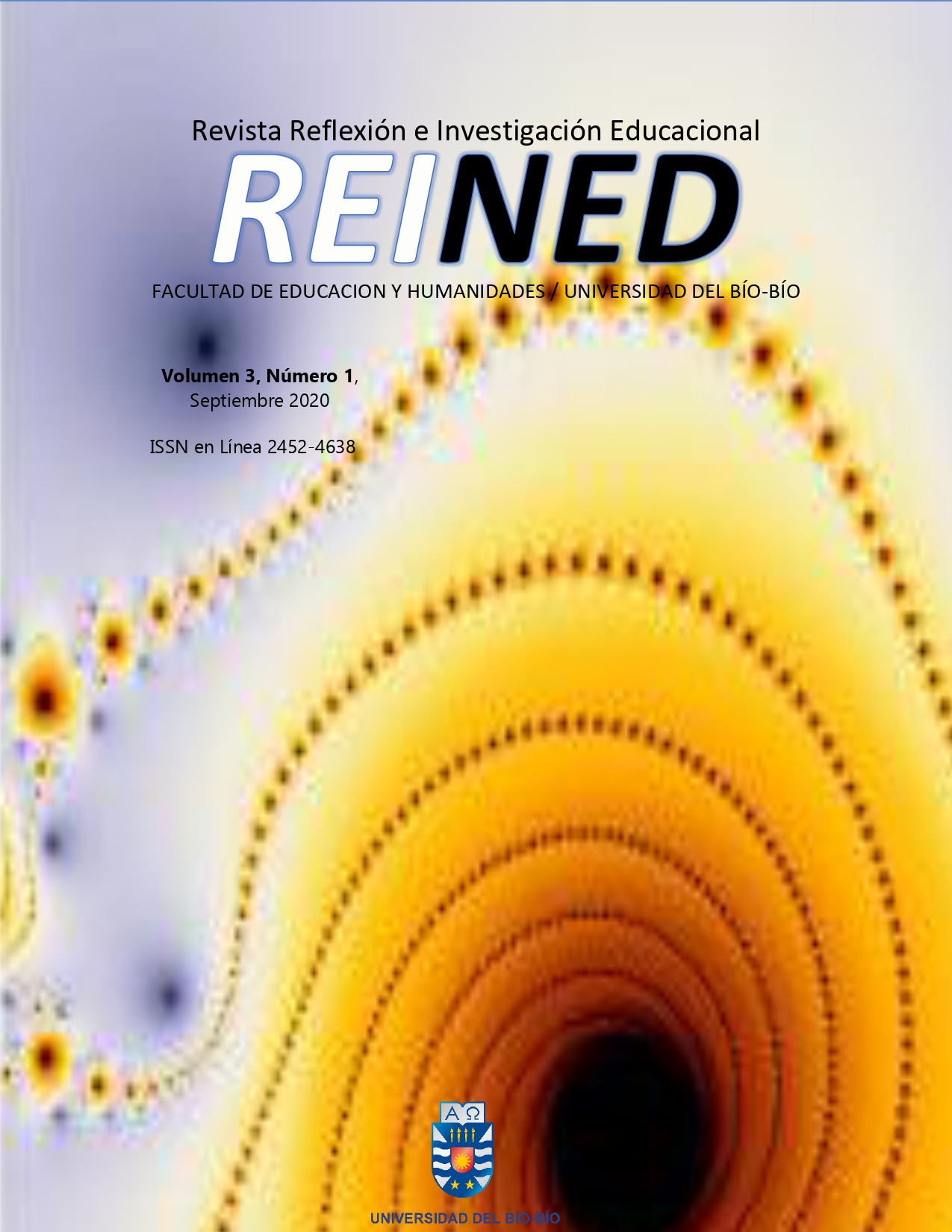Association between collaborative work, learning by observation and modeling in the improvement of pedagogical practices
Main Article Content
Abstract
This research aims to analyze the teaching perception on sociocultural elements associated with the improvement of their pedagogical practices in the Metropolitan Region. It emerged from the current theoretical gap regarding the existence of an explanatory model on the role that learning by observation, modeling and collaborative work occupies in the improvement of pedagogical practices. The research is qualitative, and is carried out with the theoretical methodological approach of Grounded Theory, by conducting six interviews with teachers. The results are presented at a descriptive and axial relational level, highlighting in the latter, the development of an initial explanatory model of how the modification of pedagogical practices from collaborative learning occurs.
Article Details
References
Aparicio, C. y Sepúlveda, F. (2018). Análisis del modelo de comunidades profesionales de aprendizaje a partir de la indagación en experiencias de colaboración entre profesores. Estudios Pedagógicos 44(3), 55-73. DOI: https://doi.org/10.4067/S0718-07052018000300055
Arancibia, V., Herrera, P. y Strasser, K. (2013). Manual de psicología educacional. Santiago, Chile: Ediciones UC.
Bandura, A. (1987). Aprendizaje social y desarrollo de la personalidad. Madrid, España: Alianza.
Bellei, C., Morawietz, L., Valenzuela, J. y Vanni, X. (2015). Nadie dijo que era fácil. Escuelas efectivas en sectores de pobreza, diez años después. Santiago, Chile: LOM.
Bridwell-Mitchell, E. (2015). Theorizing teacher agency reform: How institutional practices change and persist. Sociology of Education, 88(2), 140-159. DOI: https://doi.org/10.1177/0038040715575559
Cantarero, M. (2017). Las comunidades de aprendizaje para el desarrollo profesional docente: Un estudio de caso en el contexto chileno (Tesis doctoral inédita). Universidad de Alcalá, Madrid, España.
Deeming, P. y Johnson, L., (2009). An application of Bandura´s social learning theory: A new approach to deafblind support groups. Journal of the American Deafness & Rehabilitation Association, 203-209.
Desimone, L. y Garet, M. (2015). Best practices in teachers´ professional development in the United States. Psychology, Society and Education, 7(3), 252-263. DOI: https://doi.org/10.25115/psye.v7i3.515
Escudero, J. (2009). Comunidades docentes de aprendizaje, formación del profesorado y mejora de la educación. Ágora para la EF y el Deporte, 10, 7-31.
Kaniuka, T. (2012). Toward an understanding of how teachers change during school reform: Considerations for educational leadership and school improvement. Journal of Educational Change, 13(3), 327-346. DOI: https://doi.org/10.1007/s10833-012-9184-3
Klassen, R. y Tze, V. (2014). Teachers' self-efficacy, personality and teaching effectiveness: A meta-analysis. Educational Research Review, 12, 59-76. DOI: https://doi.org/10.1016/j.edurev.2014.06.001
Kyriakides, L., Creemers, B., Antoniou, P. y Demetriou, D. (2010). A synthesis of studies searching for school factors: Implications for theory and research. British Educational Research Journal, 30(5), 807-830. DOI: https://doi.org/10.1080/01411920903165603
Ministerio de Educación. (2003). Marco para la buena enseñanza. Santiago, Chile: Ministerio de Educación.
Rahman, F., Jumani, N., Akhter, Y. Chisthi. S. y Ajmal, M. (2011). Relationship between training of teachers and effectiveness teaching. International Journal of Business and Social Science, 2(4), 150-160.
Slavin, R. (1996). Education for all. Londres, UK: Taylor & Francis.
Sleegers, P., Thoonen, E., Oort, F. y Peetsma, T. (2014). Changing classroom practices: The role of school-wide capacity for sustainable improvement. Journal of Educational Administration, 52(5), 617-652. DOI: https://doi.org/10.1108/JEA-11-2013-0126
Strauss, A. y Corbin, J. (2002). Bases de la investigación cualitativa. Técnicas y procedimientos para desarrollar la teoría fundamentada. Medellín, Colombia: Universidad de Antioquía.
Supovitz, J., Sirinides, P. y May, H. (2009). How principals and peers influence teaching and learning. Educational Administration Quarterly, 20(10), 1-26. DOI: https://doi.org/10.1177/1094670509353043
Talvio, M., Lonka, K., Komulainen, E. Kuusela, M. y Lintunen, T. (2013). Una nueva mirada a la formación en eficacia docente de Gordon (TET): Un estudio-intervención en el aprendizaje social y emocional del profesorado.Electronic Journal of Research in Educational Psychology, 11(3), 693-716. DOI: https://doi.org/10.14204/ejrep.31.13073
Vaillant, D. (2016). Trabajo colaborativo y nuevos escenarios para el desarrollo profesional docente. Docencia, 60, 5-13.
Woolfolk, A. (1999). Educational psychology. New Jersey: Prentice Hall.

